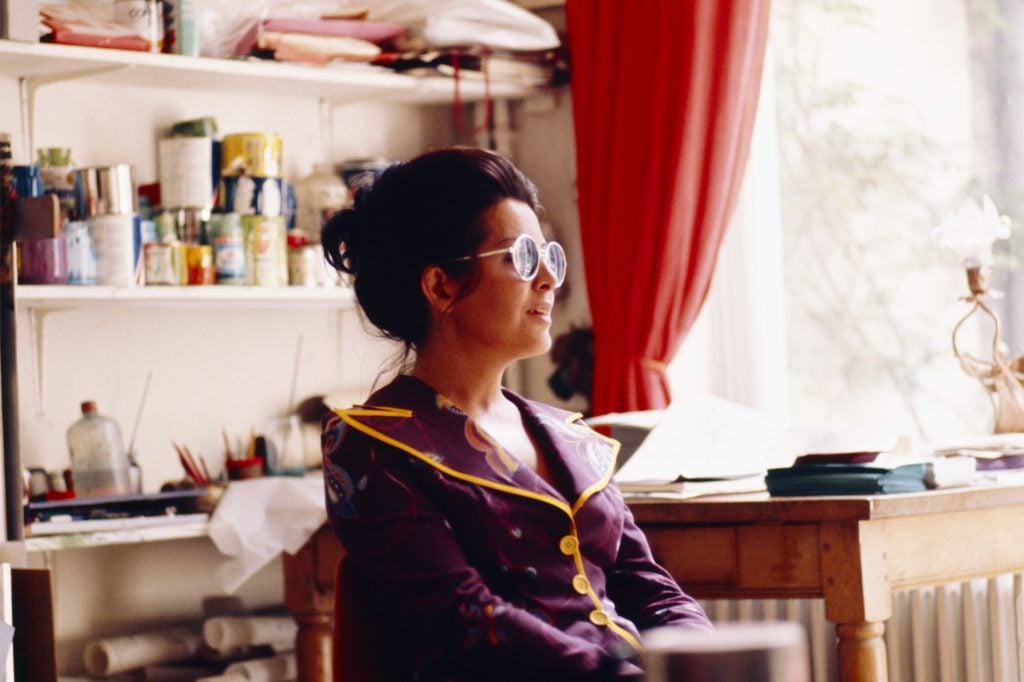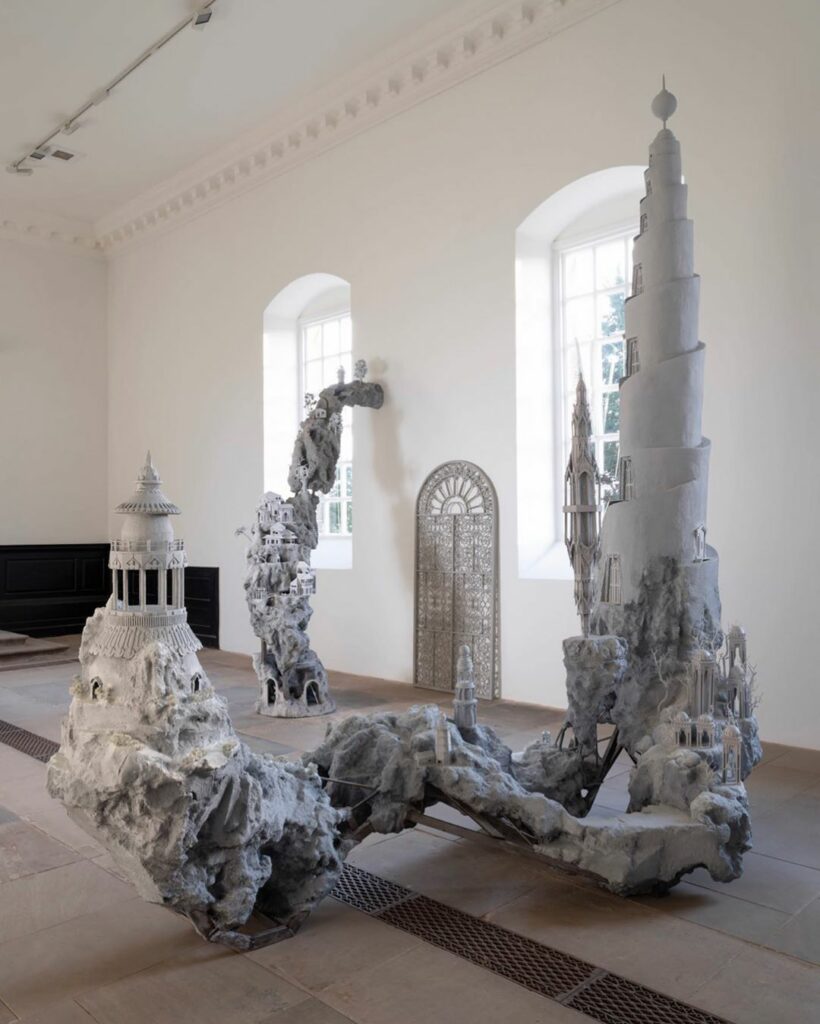Cosmic Tautology I and II
2012 - Textile (Textile)
140 x 140 cm
Santiago Borja
Cosmic Tautology I and II are two textile pieces representative of Santiago Borja’s practice and long-standing interest in disrupting universalist assumptions of minimalism by connecting them with other, non-Western or esoteric references. They were hand-woven in Teotitlán del Valle, Oaxaca, Mexico, and are composed of nine squares, the middle one left unwoven. Their composition is based on Red Square, White Letters (1962) by Sol Lewit, but they also take cues from works like Black Series II by Frank Stella. Borja however introduces traditional Mayan motifs in order to interrogate the nature of abstraction and language. Textiles are intimately related to both text and architecture. As such, they are codified systems as well as building mechanisms that are connected to communication. Likewise, geometry is understood here as a form of text. The minimalist references as well as the Mayan motifs operate as coding systems, or conceptual axioms that defy the purely representational.
Santiago Borja’s work explores improbable connections between different thought systems, thus emphasizing the cannibalistic nature of modernism, and its inherently esoteric, yet seemingly “rational”, character. His collaborations with craftspeople, where dialogue and exchange of ideas define the final outcome, offer a possibility to overlap these different forms of knowledge production, understanding manual work as an expression of codes that are culturally situated. He often intervenes in iconic modernist architecture (Le Corbusier’s Villa Savoye, Richard Neutra’s house, Mies van der Rohe’s Barcelona Pavilion) disrupting its international style, connecting it to other forms of understanding the built environment. He has also explored psychoanalytic theories, especially those of Sigmund Freud, Carl Jung and Jacques Lacan, creating situations where he also explores the non-Western approaches to what we call the unconscious.
Colors:
Related works sharing similar palette

© » KADIST
Hank Willis Thomas
2012Like many of his other sculptural works, the source of I am the Greatest is actually a historical photograph of an identical button pin from the 1960s...
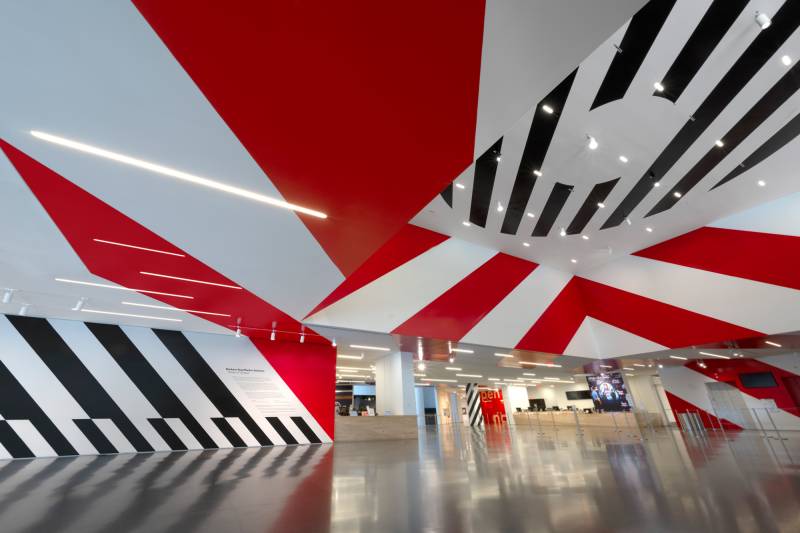
© » KQED
The Best Art I Saw in 2023 | KQED Skip to Nav Skip to Main Skip to Footer Arts & Culture The Best Art I Saw in 2023 Sarah Hotchkiss Dec 5 Save Article Save Article Failed to save article Please try again Facebook Share-FB Twitter Share-Twitter Email Share-Email Copy Link Copy Link It’s that time again — time for a hyper-specific superlative-laden list of the best art experiences I had this year but didn’t get a chance to write about...

© » KADIST
Ahmet Ögüt
2022Monuments of the Disclosed by Ahmet Ögüt is an NFT series of digital monuments to whistleblowers...

© » KADIST
Baseera Khan
2017Designed by the artist and fabricated in collaboration with Kashmiri artisans in India, Baseera Khan’s Psychedelic Prayer Rugs combine visual iconography traditional to Islam, such as the crescent moon and lunar calendar, with brightly coloured symbols of personal significance to the artist: a pair of embroidered sneakers, a fragment of an Urdu poem, and the Purple Heart medal...

© » KADIST
Karam Natour
2016Humor and Law, Kick of Duality, Point of View III, Selfie with Pan, and Thinking of You are part of an ongoing series of digital drawings Karam Natour has been creating since he was studying at Bezalel Academy of Art and Design, Jerusalem...

© » ARTSY
Diana Al-Hadid’s Monumental, Spiky Bronzes Examine Feminine Strength and Fragility | Artsy Skip to Main Content Advertisement Art Diana Al-Hadid’s Monumental, Spiky Bronzes Examine Feminine Strength and Fragility Rawaa Talass Nov 16, 2023 5:13PM Diana Al-Hadid The Bride in the Large Glass , 2023 Kasmin Price on request Portrait of Diana Al-Hadid by Diego Flores...

© » KADIST
Carmen Winant
2021Hand Study (Making in Whiteness) IIII by Carmen Winant is part of a series of five collages...
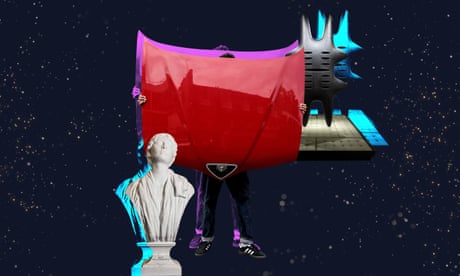
© » THE GUARDIAN
Best designs and designers of 2023: ‘A chunk of glossy sexiness’ | Design | The Guardian Skip to main content Skip to navigation Skip to navigation From left to right; Mary Wollstonecraft by artist Rowan Gillespie, Andu Masebo Part Exchange, Mac Collins domino Composite: Guardian Design/Andu Masebo/Oliver Wainwright/Fennell Photography From 3D-printed headphones to a museum dedicated to crabs, our panel of experts pick the designs and designers of the year Althea McNish: Colour is Mine at the William Morris Gallery, London Althea McNish: Colour is Mine designed by Bushra Mohamad/Msoma Architects and Nana Biama-Ofosu/YAA Projects Photograph: Nicola Tree Chosen by Adam Nathaniel Furman , artist and designer A brilliant celebration of one of the greatest – but not exhibited enough – British textile designers, this show is the kind of celebration of the power of craft and design that we need to see more of...
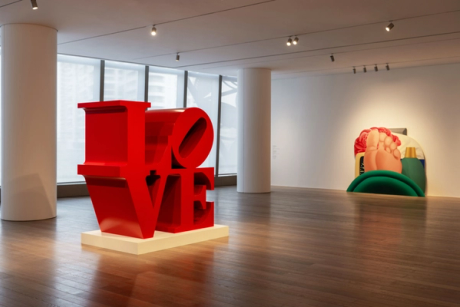
© » THEARTNEWSPER
Blockbuster Pop art show in Mumbai marks a new type of exhibition for India Art market Museums & heritage Exhibitions Books Podcasts Columns Technology Adventures with Van Gogh Search Search Mumbai blog Blockbuster Pop art show in Mumbai marks a new type of exhibition for India Pop: Fame, Love, Power at the Nita Mukesh Ambani Cultural Centre is an unprecedented but surface-level survey for a broad audience Kabir Jhala 9 February 2024 Share Installation view of Pop: Fame, Love, Power at the Nita Mukesh Ambani Cultural Centre, Mumbai Courtesy of NMACC When Nita Ambani, India’s wealthiest woman, opened her eponymous cultural centre in Mumbai last March, many in the art world were intrigued...

© » KADIST
Collier Schorr
1999Collier Schorr’s prints upend conventions of portrait photography by challenging what it means to “document” a subject...







